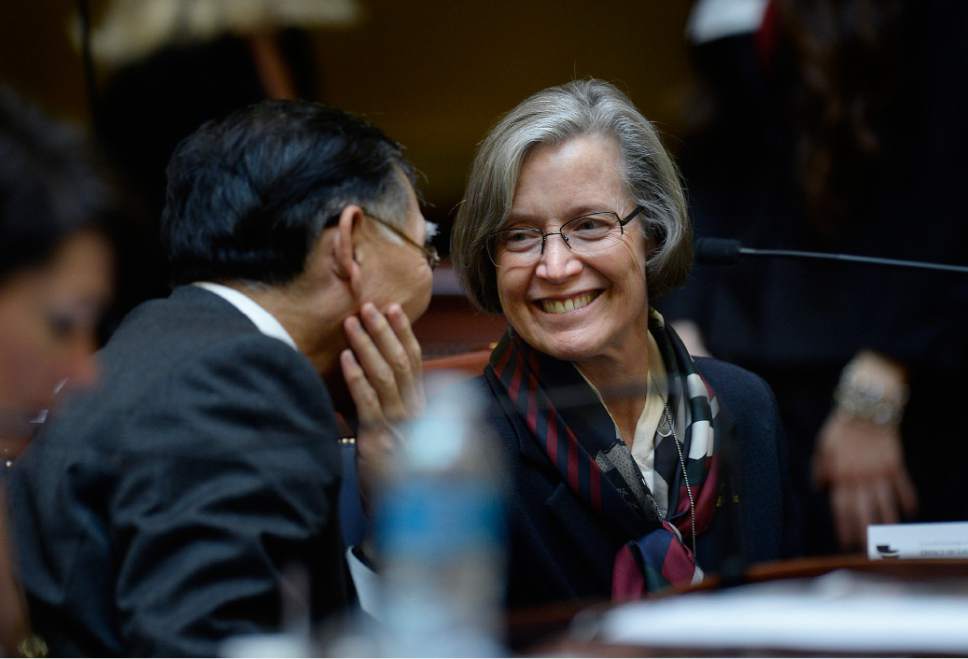This is an archived article that was published on sltrib.com in 2016, and information in the article may be outdated. It is provided only for personal research purposes and may not be reprinted.
A legislative committee breathed new life into a defunct section of Utah's election law on Friday.
The Senate Education Committee approved SB78, which would revise how to to nominate candidates for the state school board.
In 2014, a federal district judge found that committee to be unconstitutional, writing that it violates free speech rights to block a candidate from the ballot based on ideology and subjective criteria.
SB78, sponsored by Ogden Republican Sen. Ann Millner, would attempt to address those concerns by directing committee members to ignore ideology and select candidates based on an objective evaluation of their credentials.
"We only changed the things we needed to change based on what was in that [judge's] decision," Millner said.
Last year, several bills were sponsored to reform the election system, but lawmakers failed to reach a consensus on whether the school board should be partisan, nonpartisan or appointed.
Millner said she expects lawmakers to determine a long-term solution, but her bill would serve as a stop-gap measure for the November election, for which individuals have already begun declaring their candidacy.
"I know this isn't perfect, but at least it is a way forward," Millner said.
Salt Lake City Democratic Sen. Jim Dabakis suggested Millner's bill was "so ugly" it could motivate the House and Senate to compromise on a new election system.
But he questioned whether it was truly possible for a nominating committee to ignore a candidate's views on education and policy.
"I guess this is a legal contortion but it's also a legal fiction," he said.
The governor's office also questioned the efficacy of the bill, which would expect the committee and then the governor to make a fully objective selection of school board candidates.
Jon Cox, spokesman for Gov. Gary Herbert, said the best short-term solution would be to create a primary election to narrow the field of school board candidates.
"If [Herbert] isn't allowed to consider a candidate's views on education, why have a nominating committee at all?" Cox said.
Herbert announced in November that he would not form the nominating committee as a response to the legal ambiguity of the election law.
Without a nominating committee, and until the Legislature creates new law, the Utah lieutenant governor's office and attorney general's office determined that all school board candidates would be placed on November's general election ballot.
But with as many as 70 candidates filing in recent years, an open ballot creates a possibility that a winner could be selected with a small vote percentage, something Draper Republican Sen. Howard Stephenson said would be "a travesty."
"I think this is a brilliant solution," he said of SB78.
The bill was approved in a 4-1 vote along party lines. It will now advance to the full Senate for consideration.
Several school board election alternatives have been sponsored for the current legislative session.
Twitter: @bjaminwood



